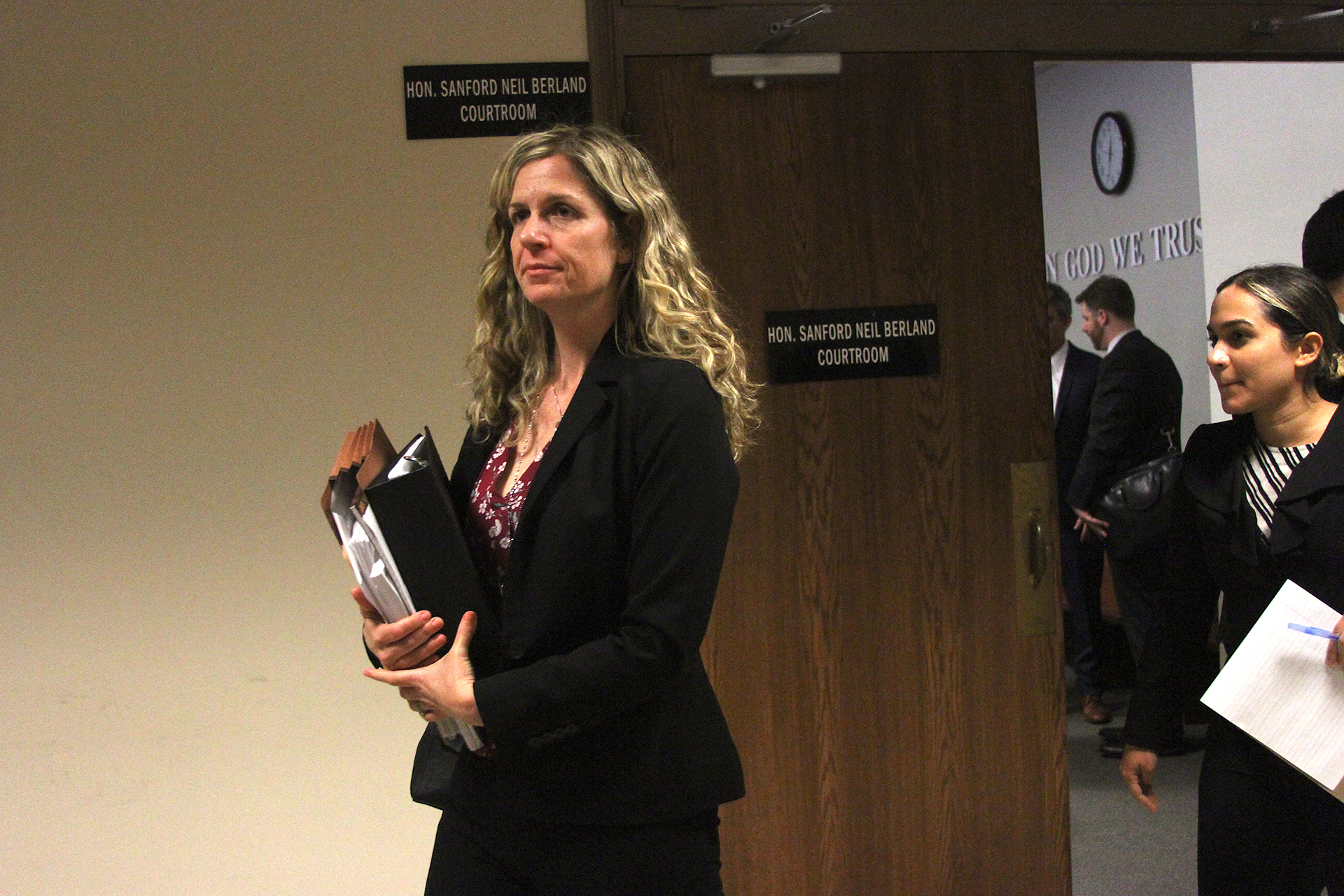Shinnecock Still Ignoring Restraining Order


On Friday, Shinnecock Indian Nation tribal lawyers and attorneys for Idon Media, the manufacturer of two double-sided 61-foot-tall electronic billboards being built along Sunrise Highway in Hampton Bays, appeared in New York State Supreme Court, where their project is being opposed by the state Department of Transportation.
The briefing before Justice Sandford Berland June 7 was for the state’s request for a preliminary injunction against the nation. Different from a temporary restraining order, a preliminary injunction requires that both parties receive notice and appear before the judge, and stop a party’s actions — in this case, completion of the first billboard and construction of the second, along the north side of Route 27 —until litigation is over. The judge said he expected the Shinnecock Nation filed a motion to dismiss on Monday.
Supreme Court Justice Cheryl Joseph’s temporary restraining order issued last month to prevent the tribe and its contractors from “conducting any and all activities relating to the construction, maintenance, and operation” of the signs until the court makes a determination on the case has been ignored, and the tribe filed papers in federal court against the DOT and the State of New York for their efforts to stop construction, including three stop-work orders and a cease-and-desist letter. The tribe removed its complaint from federal court about a week after it was filed and submitted an amended version, according to Tribal Council Chairman Bryan Polite.
“We don’t recognize the DOT’s authority or the state’s authority, and we have sovereign immunity from suit,” Polite said.
While attorneys for the DOT declined to comment Friday, the DOT has made it clear it plans to continue to fight the erection of the signs, noting safety hazards specifically. “The state will continue to pursue whatever actions are necessary to fulfill its obligation to uphold state and federal law,” NYS DOT Assistant Director of Communications Glenn Blain said.
An attorney for the Shinnecock Nation also chose not to comment, but attorney Sean Byrnes, representing Idon Media of La Quinta, CA, said the plans for the signs were well thought out, and his client does not believe it presents any kind of safety concern.
“There are digital signs similar to this one that have the same kinds of images appearing and that kind of thing all over,” he said. “The safety argument that there’s a danger associated with the digital signs is not something that we accept, and that’s something the state is relying on.”
Judge Berland asked the two parties, which are due back in court June 14, to discuss putting mutually agreed-upon protective devices or barriers around the billboards. “We want to move forward on this as promptly as we can,” he said.
Byrnes said he’s confident the tribe will win the legal argument that the land is protected and free from state and federal jurisdiction, noting the land is owned by the tribe and the property has never been taxed.
“Every record you can look at in the public domain will tell you that it’s not taxed,” he said. “And we have a letter from the state recognizing the jurisdiction of the tribe. We feel very comfortable about the tribe’s control.”
In 2010 the Shinnecock Indian Nation became a federally-recognized tribe, which also has legal ramifications.
“The easement that the state relies upon to justify this right-of-way was taken in a way that is questionable,” Byrnes said. “This is a remarkable opportunity for a tribe that for a couple hundred years hasn’t been able to take advantage of the land that they have out here like so many of their neighbors. We view these signs as a unique opportunity for them. We think when the judge finally hears everything and has all evidence in front of him, we’re relatively confident the project will be allowed to go forward.”
desiree@indyeastend.com



